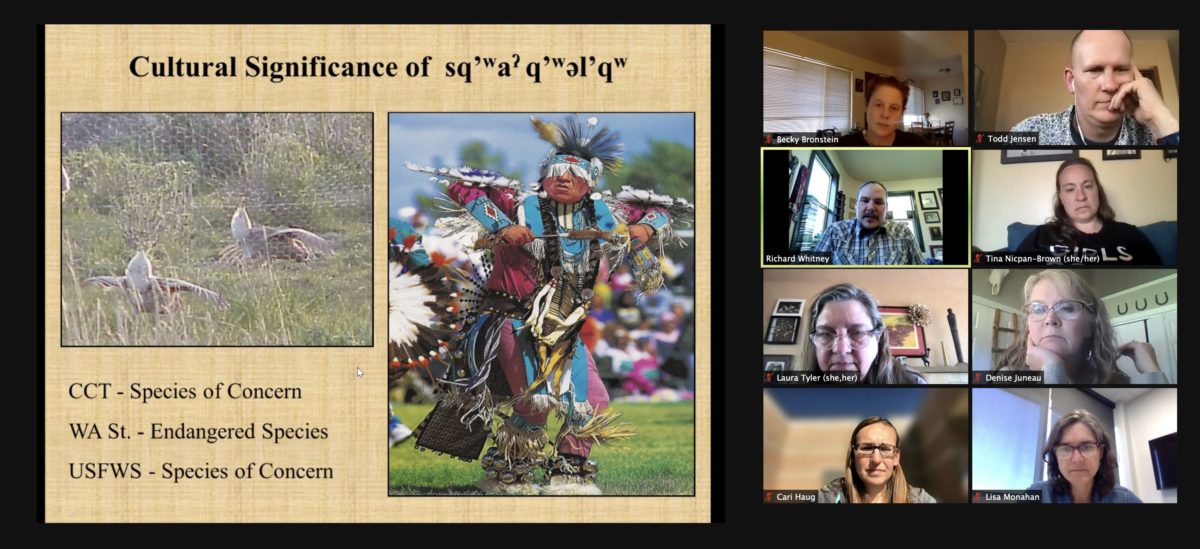Originally published on the ClimeTime website on September 21, 2022
Climate change will affect every aspect of young people’s lives, but its incredible scale makes it hard for them to comprehend. Moreover, connecting what kids learn in school to real world problems is one of the biggest challenges teachers face. EarthGen’s training programs help teachers make climate change relevant for students with examples connected to their own lives, and through activities that build their sense of agency to make a difference.
“My students have the background knowledge on climate change, but the challenging part is, how do you make it applicable to their lives?” said teacher Joseph Hantho of Neah Bay Junior/Senior High.
In a series of STEM seminars, EarthGen presented the sharp-tailed grouse as a model for how teachers can use local issues to make complex climate change concepts not only easier to understand, but also meaningful.

The sharp-tailed grouse is a ground-dwelling pheasant native to Eastern Washington. But historical land management practices and climate change have caused significant damage to the grouse’s grassland and riparian habitats. Today the sharp-tailed grouse is endangered, and fewer than 1,000 of them are left in the state.
Richard Whitney, wildlife program manager for the Colville Tribes, shared with teachers the cultural significance of the grouse and the ways that climate change threatens its survival. Jeff Heinlen, Washington Department of Fish and Wildlife biologist, discussed the habitat needs of the grouse and Dr. Kat Huybers, a climate scientist from the University of Washington, shared how to interpret data on local climate change indicators.
Using what they learn in the grouse seminar as a model, teachers like Joseph can adapt the activities and resources presented in EarthGen’s workshops to other local species as a way to engage their students.
Nearly 50 teachers from Eastern Washington attended the initial offering of these online trainings focused on the sharp-tailed grouse. EarthGen hosts other training programs –including ones focused on shellfish and invasive species – that utilize local impacts as a lens for making climate change relevant for students.
Please see EarthGen’s website for information about upcoming opportunities to learn how to make climate change relevant and interesting to your students.